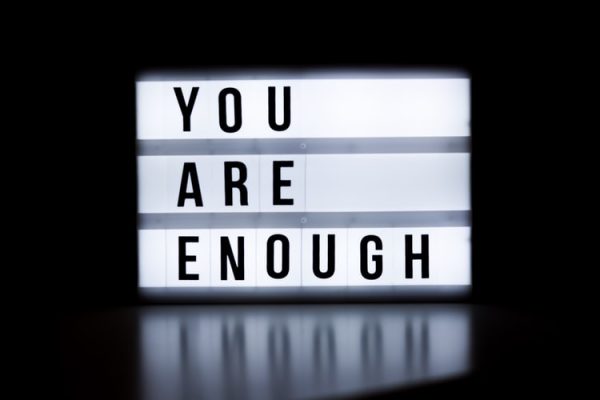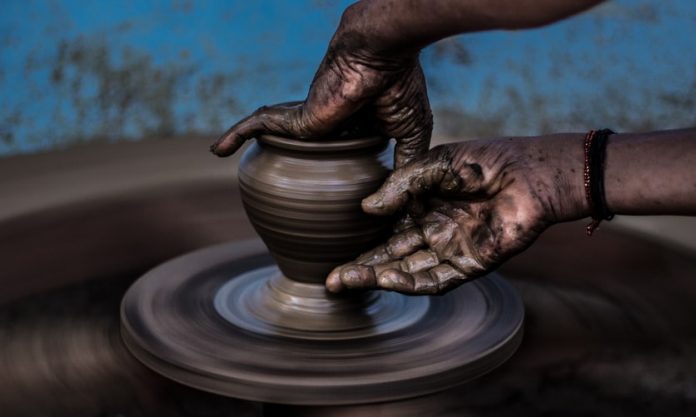Arguably the greatest factor holding several creators back from doing their best work and creating more is the inordinate pursuit of perfection.
The deep desire to be perfect, whatever it means to be perfect, has dampened the creative mojo of many an artist.
Sadly, the thing with perfection is that it is perpetually elusive―impossible to grasp. It is a myth. It doesn’t exist. Perfection is at best a perception. It is why Kelly Millar said, “Perfection cannot be defined or seen, it can only be found in your heart.”
Nothing is perfect in the real sense of things. Think about it: what you consider perfect is easily perceived imperfect by the next person.
Perfection is a state of mind, a personal way of seeing something. There are no perfect poems, novels, or paintings.
The best qualification for creative work is excellent―remarkable. It’s excellence we must pursue as creators, leaving perfection to sort itself out.
There is no calibrated measure or scale for perfection; hence its excruciating unattainability.
Perfection is the classic example of a mirage; the closer you think you are to attaining it, the more you find out it is not real. Ditch that alluring quest for perfection and start doing your best work already.
Perfection is not a destination at which anybody really arrives, because it is illusory.

Those persons we fondly dub as geniuses, maestros, and masters are not perfect as far as we know. Yes, they are excellent and outstanding. But none of them is perfect.
Hemingway is believed to have said that he, like other writers, was an apprentice in a vocation where no one gets to be a master.
I think the thinking holds true for not only writing but all creative endeavours.
There are no masters per se, only people the majority agree to regard as masters.
Perfect lets you stall, ask more questions, do more reviews, dumb it down, safe it up and generally avoid doing anything that might fail (or anything important). You are not in the perfect business. Stop pretending that’s what the world wants from you. Truly perfect is becoming friendly with your imperfections on the way to doing something remarkable. ―Seth Godin
Ironically, what most creators find in the search for perfection are ease, ordinariness, and stagnancy―all results of a lack of courage. The blind and inordinate pursuit of perfection typically results from a lack of courage.
It is more often than not an outcome of being too careful of what folks would say or think about one’s work.
The irony is that when a creator assumes this pathetic state, the very thing they fear comes upon them in the end. After all, what you resist persists.
Such creators fail because in their bid to be too careful, they erode their creative edge until there is none left. In their bid to please everyone, they play it too safe and end up pleasing no one.
Chasing perfection makes you doubt your best work, your right to create, your authority as a creator, and even your own self.
It imbues you with a tendency for what-ifs. You find yourself asking all sorts of what-if questions.
What if the public does not like my work? What if I’m a fraud? What if they think this is not good enough? The list goes on and on.
Doubt is sure to come during the creative process. When it does come in those moments you are creating, be kind to it, hear it out even.
Then acknowledge its contribution, offer your gratitude for its concern and reassure it afterward that you are an artist, and risk is essential.
What we must seek is the way to deliver amazing results. Highly productive creators don’t worry about perfection. They are too occupied with getting things done and delivering excellence. What the world out there wants from you is your best work, not perfection.
The real world does not reward perfect people; it rewards those who get things done. It compensates those who come up with remarkable creations.
To be more creative, first, afford yourself time to wonder what is possible. When you find these novel possibilities, what’s next is to courageously make moves in that direction.
The best part is that even the slightest moves count insofar it is in the direction of novel possibilities. You have all that you need to create, all that is left is the courage to start.
You don’t have to be right when you start. You don’t have to be perfect. Your creations don’t have to be perfect. They only have to be real, authentic―represent a true expression of yourself―and, of course, done.
It must be mentioned here that I’m not advocating for mediocrity. Far from it. I’m in fact writing against mediocrity and hesitation cloaked in the pursuit of perfection.
What I’m making a case for is excellence as against perfectionism.
I’m canvassing for conscientiousness as against total faultlessness. To focus on getting things done as against seeking perfection does not mean to jettison meticulousness.
Remarkable, top creators are meticulous in doing their work, they dedicate great care and effort to their creative endeavours. But they are not obsessed with perfection. They know that stuff is a waste of time, energy, and resources.
What they do is create their best work, and leave those who care about such things as flawlessness to worry about its perfectness. Remember, done is better than perfect.









